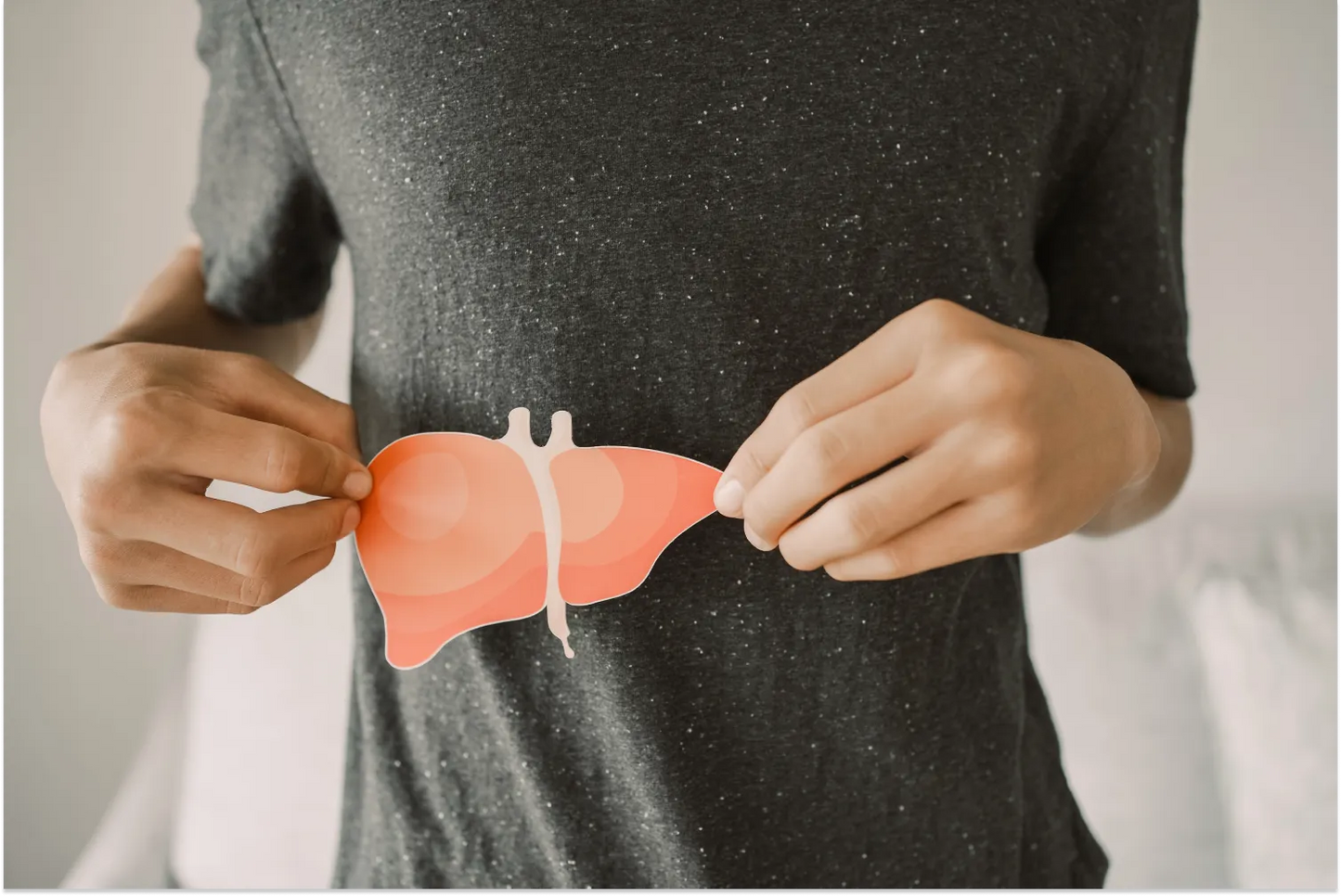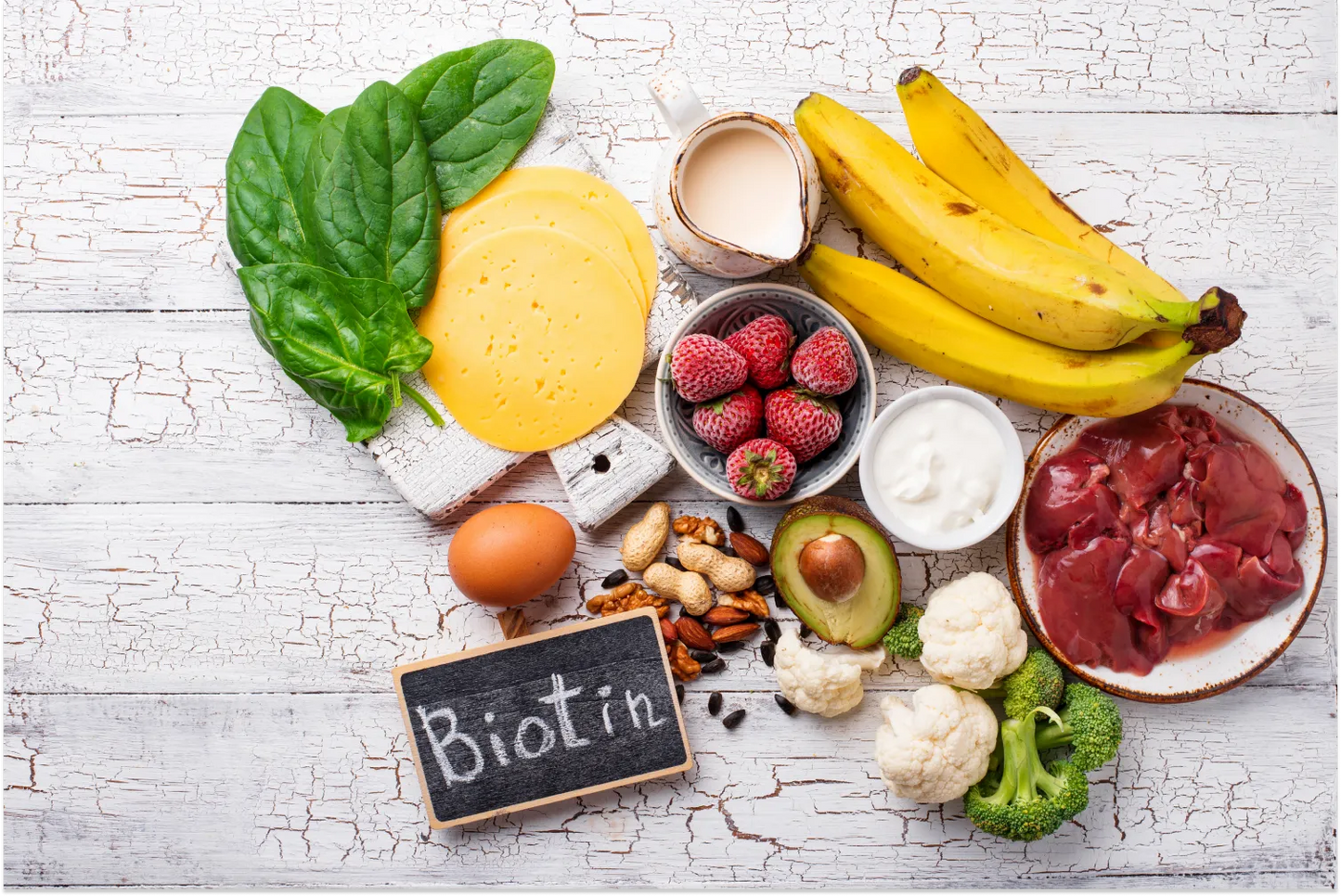
How To Detox Your Liver: 8-Step Liver Cleanse
Our liver tirelessly works to filter, detoxify, and metabolize everything that we consume. From the food on our plate to the air we breathe, our liver determines what stays in our system and what gets expelled.
Just like how we occasionally declutter our homes or go on a detox diet, our liver also benefits from a bit of care and cleansing. Before we get into the “hows” of performing a liver cleanse, let’s talk a little about the “whys” first.
Why Is Detoxifying Your Liver Important?
If you think of your body operations as an office job, then the liver would easily be one of the hardest working employees. Each day, it’s responsible for processing piles of information (in this case, it’s nutrients, toxins, and more) and categorizing them accordingly. Without proper breaks or support, this employee of the month can become overwhelmed.
Let’s dive a little deeper into the details to paint a complete picture.
The Role of the Liver in Your Body
It’s easy to take the liver for granted, as it's tucked away deep within the body and silently doing its job. While there are plenty of organs that get more of the spotlight, few of them are as essential to your overall health as the liver.
Here are just a few of the essential functions that your liver is involved with:
- Processing and filtering pollutants: Every day, the liver works diligently to filter out pollutants and other harmful compounds from the blood, acting as a purification system.
- Managing cholesterol: While the liver technically produces cholesterol, it also helps to remove excess amounts and aims for the ideal balance.
- Producing essential enzymes: Liver enzymes can help break down foods, aiding in the digestion of fats with the help of the gallbladder and even helping to remove toxins.
- Immune system support: Your liver plays a role in fighting infections by producing immune factors and removing bacteria from the bloodstream.
Long-Term Benefits of a Detoxified Liver
Undergoing a liver detox means more than just lowering the risk of disease. There are a variety of health benefits that come from taking good care of your liver.
These include:
- Digestive support: The liver produces bile, which is necessary for the breakdown of fats and the absorption of nutrients. When the liver is detoxified, it may produce bile more effectively.
- Energy support: As the liver is responsible for converting nutrients from food into energy, a detoxified liver can focus on creating energy.
- Immune system support: A clean liver can filter out bacteria and toxins from the bloodstream, supporting the immune system.
- Balanced hormones: The liver is responsible for metabolizing hormones. A detoxified liver can encourage a more balanced hormonal state.
- Improved skin: Toxins in the liver can lead to various skin problems like breakouts, dryness, and redness. A detoxified liver can help encourage clear skin.
- Mental clarity: By removing toxins from the body, a detoxified liver can also support mental clarity and concentration.
- Weight loss: The liver plays an important role in metabolizing fats. Detoxifying the liver can support a healthy weight.
Detoxing Your Liver in 8 Steps
Your liver has always been there for you, so why not do something for it? If you’re looking to give your liver a little extra TLC and show it the love that it deserves, here is an 8-step journey that can help detoxify your liver.
1. Begin With a Balance Diet
Your liver thrives on a robust mix of nutrients. It helps break down food into energy, eliminate toxins, and produce essential proteins. This is why feeding it with the right diet is key.
Beets, citrus fruits (think lemons, oranges, and grapefruits), and turmeric aren't just colorful additions to your diet; they are superfoods when it comes to supporting your liver. They possess properties that encourage and enhance the liver's detoxifying processes. A warm turmeric latte or beet salad can be delightful and healthful additions to your weekly menu.
You can also support your liver with plenty of leafy greens. These are packed with chlorophyll, which acts like a neutralizer, helping to remove toxins from the bloodstream. Spinach, kale, and Swiss chard are excellent options. Whether in salads, smoothies, or as a side dish, they are versatile and easy to incorporate into meals.
Proteins are essential for tissue repair, and the liver also needs them for support. Opt for lean cuts of poultry, fish like mackerel or cod, and even plant-based proteins such as lentils and chickpeas.
Meanwhile, whole grains like quinoa, oats, and barley are rich in dietary fiber, essential for digestion. They also support the liver in breaking down fats and releasing energy.
Finally,omega-3 fatty acids are a must-have. Flaxseeds sprinkled over salads, yogurt, or wild-caught salmon can be delicious ways to incorporate more of these healthy fats into your daily diet.
2. Increase Your Water Intake
Water is the essence of life. Beyond the immediate refreshing feeling, it has deep-rooted benefits, especially for our liver. Each cell in our body requires water to function, and the liver is no exception.
By maintaining adequate water intake, you can support the process of eliminating toxins from the body. These toxins, if accumulated, can strain the liver and cause damage if left unchecked.
Hydration can also help support optimal cellular function. The liver, being a significant organ, benefits immensely from you taking the extra care to ensure your body is properly hydrated.
We know that plain water can be boring, so feel free to jazz up your water intake by adding slices of lemon, some cucumber, a sprig of mint, or Dr. Kellyann’s Lemon Sips powder. Each of these options can not only boost the taste of your water but also provide added nutrients to support liver function.
3. Limit Processed Foods and Sugars
In our fast-paced lives, convenience often wins over health, making us reach out for that candy bar or bag of chips. However, these temporary pleasures can overwork and strain our liver in the long run.
Excessive sugar is converted into fat in the liver. Over time, this can lead to an accumulation that might affect liver function. When that sugar urge strikes, satiate it with natural sugars. Fresh fruits like berries, apples, or a banana can be your savior.
Instead of a bag of chips, consider munching on a handful of nuts like almonds, walnuts, or even pumpkin seeds. They provide the crunchy satisfaction you’re looking for, along with essential nutrients, without the negative impacts of processed salts and additives.
Finally, when shopping, make a habit of reading nutrition labels. Look for products with minimal added sugars, salts, and preservatives. This small step ensures your liver isn’t tirelessly processing unnecessary and potentially harmful ingredients.
4. Drink Bone Broth
There's something profoundly comforting about sipping on a steaming mug of Dr. Kellyann’s Homestyle Bone Broth. However, this age-old home remedy goes beyond mere comfort — it can also support your health.
Here are some of the benefits you can expect when drinking bone broth:
- Full of collagen protein: Collagen, which is the “glue” that holds our body together, can support the renewal of liver cells and encourage the liver's protective barriers.
- Contains amino acids: Bone broth is teeming with a variety of amino acids like glycine, arginine, and proline, which can support the liver in its detoxification processes.
- Supports gut health:Bone broth helps support the gut lining and encourage healthy digestion, which can help ease the toxic load on our liver.
- Encourages hydration: Beyond its nutrient content, bone broth is an excellent hydration source rich in electrolytes.
5. Engage in Regular Exercise
While we often associate exercise with muscle tone or cardiovascular health, it's also crucial for optimal liver function. Engaging in physical activity has direct and indirect benefits on this vital organ.
First, regular exercise enhances blood flow throughout the body. Increased circulation ensures that the liver receives oxygen-rich blood, necessary for its detoxification processes.
Second, the gallbladder plays a key role in digestion and toxin removal. Exercise aids the gallbladder in efficiently processing and eliminating bile, a vital digestive enzyme.
Third, keeping your weight in check is fundamental for reducing the risk of liver disease. Whether it's brisk walking, swimming, or yoga, find an activity you love and stick to it. Remember, aim for consistency over intensity.
6. Add Supplements for Further Support
Supplements can be a great addition to your daily routine, filling any nutritional gaps and offering added support to liver function. However, choosing the right ones is key.
Here are a few supplements that can support our liver during a detox:
- Vitamin C: An essential antioxidant, vitamin C can support the liver by neutralizing free radicals, helping reduce oxidative stress on the liver.
- Milk thistle: A popular liver support herb, the active compound silymarin can encourage liver cell production and protect the liver from toxins.
- Selenium: This essential mineral plays a role in producing antioxidants in the body, further helping the liver in its detoxification processes.
- Dandelion root: Often considered a pesky weed, dandelion has potent properties that can support bile production and overall liver function.
- Green tea: Packed with antioxidants called catechins, green tea has shown potential to help support liver health.
7. Manage Stress Levels
It's astounding how our mental state can significantly impact our physical well-being. Chronic stress doesn't just wreak havoc on our minds; it manifests in our bodies.
High stress levels can lead to increased oxidative stress, which, in turn, can negatively impact liver health. Luckily, engaging in mindful practices like meditation, deep breathing exercises, or simply spending time in nature can considerably reduce stress levels.
You can also use exercise to help you manage your stress. Activities like yoga can also harmonize the mind and body, promoting relaxation and reducing stress hormones.
8. Reduce Alcohol and Drug Intake
While the occasional drink might be enjoyable, controlling your alcohol intake is essential to maintaining a healthy liver.
The liver is the primary organ responsible for processing alcohol. Consuming an excess of alcohol can overwhelm the liver cells and result in liver damage over time.
Regularly consuming high doses of certain medications or illicit drugs can also harm the liver. Always make sure you follow prescribed dosages, avoid self-medication, and closely follow the advice of a qualified healthcare professional.
If you do choose to drink, do so responsibly. Embracing moderation not only reduces the risk of liver issues but also promotes overall health and well-being.
The Bottom Line
The path to optimal liver health isn't a sprint; it's a continuous journey. This journey requires commitment and encompasses every aspect of our lives, from the food we consume to the choices we make. It's not merely about living but thriving.
As you take steps towards this holistic health approach, Dr. Kellyann can offer additional support. Remember, the steps you take today mold the foundation for a healthier, brighter future. Because in the grand tapestry of health, every thread — and every choice — counts.
Sources
How Does the Liver Work? | NCBI Bookshelf
Liver Disease: Types, Causes, Symptoms and Treatment | Cleveland Clinic
Detoxing Your Liver: Fact Versus Fiction | Johns Hopkins Medicine
Water: Essential for Your Body | Mayo Clinic
Stress Effects on the Body | American Psychological Association
How Long Does It Take Your Liver to Detox From Alcohol? | Cleveland Clinic
Understanding Your Liver: Location, Function, and Complexity | Liver Foundation







